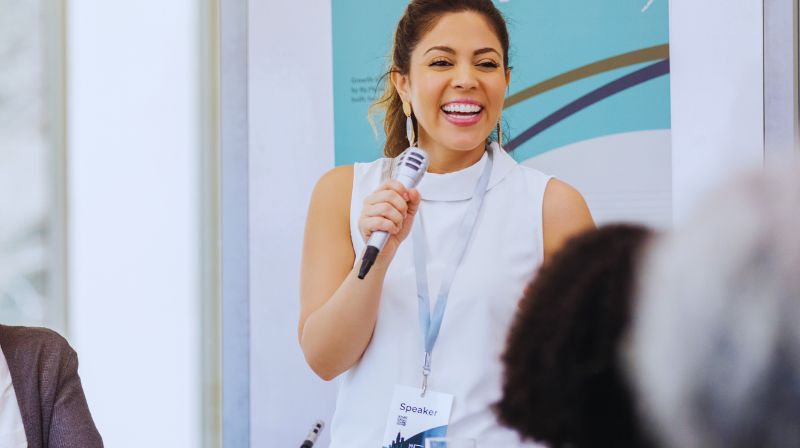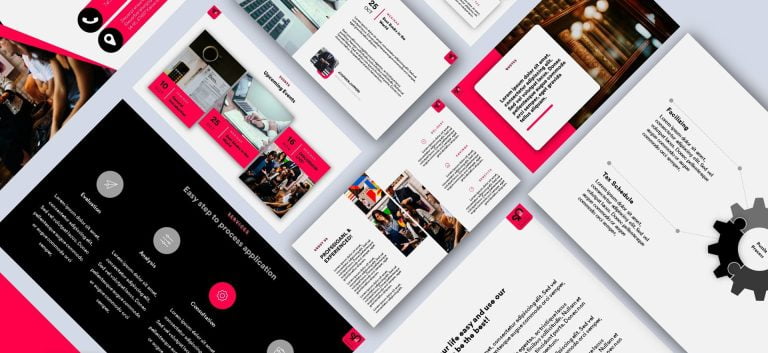When I first started giving presentations, I didn’t realize how challenging it could be to clearly explain my ideas. Like many people, I struggled with speaking in front of others, often feeling nervous and unsure. I began to wonder if presentation skills were more than just about speaking well.
As I learned more, I found out that presentation skills are actually considered soft skills, which are essential for personal and professional success. Improving these skills not only boosts your confidence but also helps you communicate better with others.
If you’re curious about how to strengthen your presentation skills and why they matter, keep reading! There are plenty of practical tips and insights below that will help you get started.

What Are Presentation Skills?
Presentation skills are the abilities that help you share information clearly and effectively with others. Whether you’re talking in front of your classmates, giving a speech at work, or even explaining an idea to your friends, presentation skills are what allow you to communicate your thoughts in a way that others can easily understand. In simple terms, it’s all about how well you can organize and deliver information, keeping your audience interested and engaged. These skills are important in many areas of life, from school presentations to job interviews, and they can have a big impact on how successful you are in getting your message across.
Being able to present ideas clearly is essential because it shows confidence, helps you build strong connections with others, and makes you stand out. Whether you’re working on a group project in school or leading a meeting at work, good presentation skills help you explain your ideas and get people on board with your vision. In a world where communication is key, having strong presentation skills can make a big difference in your personal and professional success.
Examples of Presentation Skills
- Speaking clearly: Using a calm and confident voice that’s easy to understand.
- Using body language: Gesturing, making eye contact, and standing with good posture to connect with your audience.
- Engaging the audience: Asking questions, telling stories, and making the presentation interactive to keep people interested.
- Organizing your thoughts: Structuring your ideas in a logical way, with a clear beginning, middle, and end, so your message flows smoothly.
Why Are Presentation Skills Considered Soft Skills?
Soft skills are personal attributes that help you interact effectively with others, especially in social and work situations. They include things like communication, teamwork, and problem-solving. Presentation skills fall under this category because they are all about how you share information with others in a way that’s clear and easy to understand. These skills aren’t just about what you know, but how well you can communicate that knowledge. Whether you’re leading a group project at school or speaking to coworkers in a meeting, having strong presentation skills makes collaboration smoother and more effective.
Presentation skills play a huge role in both communication and teamwork. When you present ideas clearly, it’s easier for others to understand what you’re saying, which leads to better conversations and decisions. In group settings, being able to explain your thoughts well helps everyone stay on the same page. These skills aren’t only useful in the workplace, but they also matter in everyday life—like when you need to explain your point of view to friends or family. In professional settings, strong presentation skills can make you stand out and show that you are confident and capable of leading others.
How Soft Skills Like Presenting Help in School and Work
- Build confidence when speaking in front of others: The more you practice presenting, the more comfortable you become with public speaking, which can boost your confidence in many areas of life.
- Improve your ability to express ideas clearly: Presentation skills teach you how to organize your thoughts and communicate them in a way that others can easily follow.
- Develop leadership qualities: Being able to present well often puts you in a leadership role, whether in school projects or work meetings, where you guide others by explaining ideas and driving conversations forward.
Benefits of Improving Your Presentation Skills
Improving your presentation skills has a huge impact on both your personal and professional life. First and foremost, it makes communication much clearer, helping others understand exactly what you want to say. When you can present your ideas effectively, people are more likely to listen and engage with your message. Whether it’s delivering a presentation in school or explaining a project at work, strong presentation skills lead to greater success in both settings. Additionally, these skills help build confidence, especially when it comes to public speaking, reducing the fear that many people feel when they have to speak in front of others.

Personal Benefits
- Boosts self-confidence: As you improve your ability to present, you naturally feel more confident speaking in front of others, whether it’s a small group or a large audience.
- Helps with everyday communication: Good presentation skills improve your overall communication, making it easier to express yourself clearly in daily conversations.
- Makes you more persuasive: Knowing how to present your ideas well helps you convince others of your point of view, whether it’s in a debate with friends or negotiating at work.
Professional Benefits
- Gives you an edge in job interviews: Strong presentation skills allow you to clearly explain your qualifications, making you more appealing to potential employers.
- Helps you succeed in group projects or presentations: When working with a team, being able to present your ideas clearly helps the whole group stay organized and focused.
- Makes you stand out to employers: In the workplace, good presentation skills are a sign of leadership, showing employers that you are capable of leading discussions and driving projects forward.
Ways to Improve Your Presentation Skills
Improving your presentation skills doesn’t have to be difficult—it just takes practice and a willingness to learn. By focusing on a few simple techniques, you can become a more confident and effective speaker. These tips will help you organize your thoughts, engage your audience, and deliver your message in a way that’s easy to understand. Whether you’re getting ready for a class presentation, a work meeting, or simply improving for personal growth, following these steps will help you get better at presenting over time.
Practice Makes Perfect
- Rehearse your presentations often: The more you practice, the more comfortable you’ll feel when it’s time to present. Set aside time to go over your presentation several times, refining it each time.
- Record yourself and watch to see where you can improve: By watching yourself present, you can catch areas where you might need to improve, whether it’s speaking too quickly, not making enough eye contact, or using too many filler words.
Use Visual Aids
- Use slides, videos, or images to make your point clearer: Visual aids can help break up the information and make it easier for your audience to follow along. Use images or short videos to support your key points.
- Keep visual aids simple and easy to understand: Avoid cluttering your slides with too much text or overly complicated graphics. The goal is to enhance your presentation, not distract from it.
Get Feedback
- Ask friends, teachers, or colleagues for feedback on your presentations: Sometimes, you can miss things that others may notice. Asking for feedback from others can help you improve.
- Use constructive criticism to improve: Don’t be afraid of criticism. It’s a valuable tool for growth. Take the feedback you receive and apply it to your next presentation to keep getting better.
My Personal Experience With Presentation Skills
I still remember the first time I had to give a presentation in front of a group—it was during a school project, and I was really nervous. My hands were shaking, and I kept losing my place in the notes. The fear of standing in front of my classmates made it hard to focus, and I ended up rushing through the presentation without making much eye contact. The feedback I received wasn’t great, and I knew I needed to get better.
After that experience, I decided to work on my presentation skills. I practiced speaking in front of a mirror, recorded myself to spot areas for improvement, and asked my friends to give me feedback. Slowly, I became more confident. The next time I had to present, I felt much more in control. I spoke clearly, used simple visual aids to support my points, and made sure to engage the audience by asking questions. The improvement was noticeable, and I received positive feedback from both my teacher and classmates.
Improving my presentation skills has made a huge difference, not just in school but in other areas of my life too. Whether I’m presenting in professional life or explaining something to a group, I now feel confident and prepared. This experience showed me just how valuable presentation skills are, and it’s something I continue to work on even today.

Key Soft Skills vs. Hard Skills
When it comes to developing skills for personal and professional success, it’s important to understand the difference between soft skills and hard skills. Soft skills are personal attributes that help you interact effectively with others, such as communication, teamwork, and leadership. These skills are essential for building relationships, working in teams, and leading others. On the other hand, hard skills are more technical abilities that are specific to a job or task, like coding, data analysis, or graphic design.
Here’s a table that highlights some key examples of soft skills vs. hard skills:
| Soft Skills | Hard Skills |
|---|---|
| Communication | Coding |
| Teamwork | Data Analysis |
| Leadership | Graphic Design |
| Problem-Solving | Accounting |
| Presentation Skills | Project Management |
Soft skills are often seen as more flexible because they apply to almost any career, while hard skills are specific to particular industries or roles. Both types of skills are important for career success, but having strong soft skills, like presentation skills, can make you more adaptable and effective in different situations. They complement hard skills and can make you stand out to employers, especially in leadership roles or collaborative projects.
FAQs
Are presentation skills considered essential soft skills in the workplace?
Yes, presentation skills are considered essential soft skills in the workplace as they enable individuals to communicate ideas effectively and engage with audiences.
What are the types of presentations that require strong presentation skills?
The types of presentations that require strong presentation skills include formal presentations, team meetings, pitches to clients, and training sessions, all of which necessitate effective communication and engagement.
How can developing soft skills, such as presentation skills, impact my career?
Developing soft skills, including presentation skills, can significantly impact your career by enhancing your ability to communicate effectively, leading to better collaboration with team members and increased chances of career advancement.
What are some effective strategies to hone your presentation skills?
Some effective strategies to hone your presentation skills include practicing regularly, seeking feedback from colleagues, using presentation tools like PowerPoint, and focusing on verbal communication and active listening.
Why are presentation skills critical for leadership roles?
Presentation skills are critical for leadership roles because they enable leaders to articulate their vision, engage their teams, and build trust and rapport with stakeholders, which are essential for effective management.
What are some examples of soft skills that complement presentation skills?
Examples of soft skills that complement presentation skills include communication skills, interpersonal skills, time management, and the ability to bounce back from setbacks during a presentation.
How do presentation skills help in building trust and rapport with an audience?
Presentation skills help in building trust and rapport with an audience by demonstrating confidence, clarity, and the ability to communicate effectively, which fosters a positive connection with listeners.
How can I learn new skills to improve my presentation abilities?
You can learn new skills to improve your presentation abilities by attending workshops, and online courses, practicing in front of peers, and studying effective presentations to understand what makes them compelling.
What skills do employers look for regarding presentation abilities?
Employers often look for skills that enable candidates to deliver engaging presentations, including strong verbal communication skills, the ability to connect with team members, and proficiency in using various presentation tools.
Key Takeaways
- Presentation skills are essential soft skills.
- They improve communication and help build confidence.
- These skills benefit both personal and professional success.
- Regular practice and feedback can significantly enhance presentation abilities.
Conclusion
Presentation skills are a vital part of soft skills, making a huge difference in how you communicate and engage with others. Whether in school, work, or personal life, being able to present ideas clearly helps build confidence and opens doors to success. The good news is, that you can always improve these skills through practice, feedback, and using tools like visual aids. Keep honing your presentation abilities, and you’ll see the impact in every area of your life, from job interviews to everyday conversations. Start today, and you’ll soon notice how much more confident and effective you become in your interactions.






